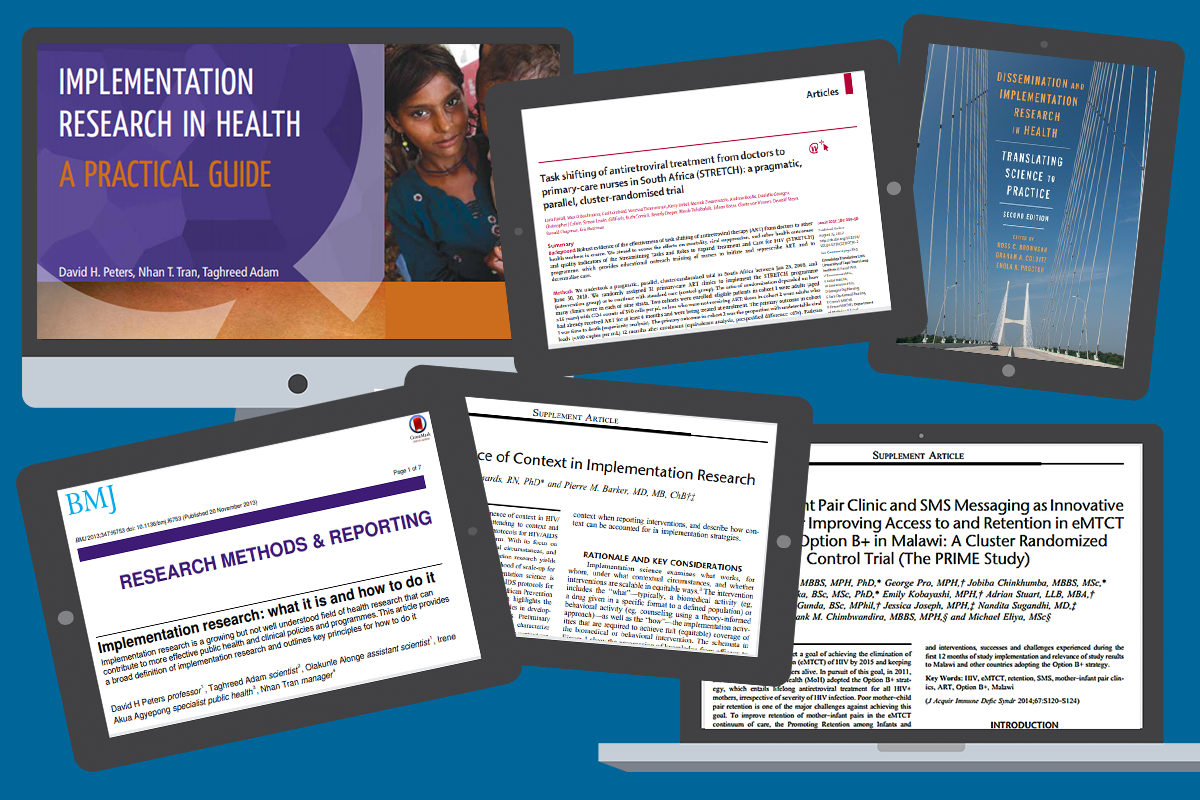
Author Profile
Theresa Hoke
Director, Health Services Research
Email Theresa Follow on Twitter Website
Theresa Hoke is the Director of Health Services Research at FHI 360, where she manages multi-disciplinary teams in conducting implementation research to improve primary health care services in resource-poor settings. In her 20 years at FHI 360, she has led studies to examine the feasibility, acceptability, scalability, and real-world effectiveness of a range of public health interventions. Hoke is currently co-leading an implementation science portfolio supporting introduction of pre-exposure prophylaxis (PrEP) interventions for HIV prevention in sub-Saharan Africa. Her earlier implementation research in Kenya, South Africa, Tanzania, Uganda, and Zimbabwe provided evidence to program managers about effective linkages between HIV and family planning services. Another investigation in Madagascar supported the design of a nationally implemented intervention for provision of injectable contraceptives by community health workers.
Before joining FHI 360, Hoke was part of the team launching USAID’s initial Quality Assurance Project, led by University Research Corporation. She collaborated with field colleagues in conducting operations research studies to test quality improvement interventions to strengthen child health services. Hoke’s commitment to closing implementation gaps traces back to her two years working in a health center in rural Niger as a volunteer nutrition educator for Peace Corps.
Hoke earned her Masters of Public Health in Maternal and Child Health and her doctorate in Health Policy and Administration, both from the University of North Carolina at Chapel Hill. She first embraced the discipline of implementation research through participation in the 2012 Training Institute for Dissemination and Implementation Research in Health, sponsored by the U.S. National Institutes of Health.
Select peer-reviewed publications
- Ghanotakis E, Hoke T, Wilcher R, Field S, Mercer S, Bobrow E, Namubiru M, Katirayi L, Mandera I. Evaluation of a male engagement intervention to transform gender norms and improve family planning and HIV service uptake in Kabale, Uganda. Global Public Health. 2017 12:1297-1314.
- Hoke T, Mackenzie C, Vance G, Boyer B et al. Integrating Family Planning Promotion into the Work of Environmental Volunteers in Kenya: A Mixed Methods Evaluation. International Perspectives on Sexual and Reproductive Health, 2015; 41:43-50.
- Hoke T, Harries J, Crede S, Green M. Expanding contraceptive options for PMTCT clients: a mixed methods implementation study in Cape Town, South Africa. Reproductive Health, 2014; 11:3.
- Hoke T, Brunie A, Krueger K, Dreisbach C, et al. Community-Based Distribution of Injectable Contraceptives: Introduction Strategies in Four Sub-Saharan African Countries. International Perspectives on Sexual and Reproductive Health, 2012; 38:214-219.
- Crede S, Hoke T, Constant D, Green MS. Factors impacting use of long acting and permanent contraceptive methods by postpartum HIV positive women in Cape Town, South Africa. BMC Public Health, 2012; 12:197.
- Hoke TH, Wheeler SB, Lynd K, Green MS, Razafindravony BH, et al. Community-based provision of injectable contraceptives in Madagascar: “Task shifting” to expand access to injectable contraceptives in rural sub-Saharan Africa. Health Policy and Planning, 2012; 27:52-59.
Related Posts

